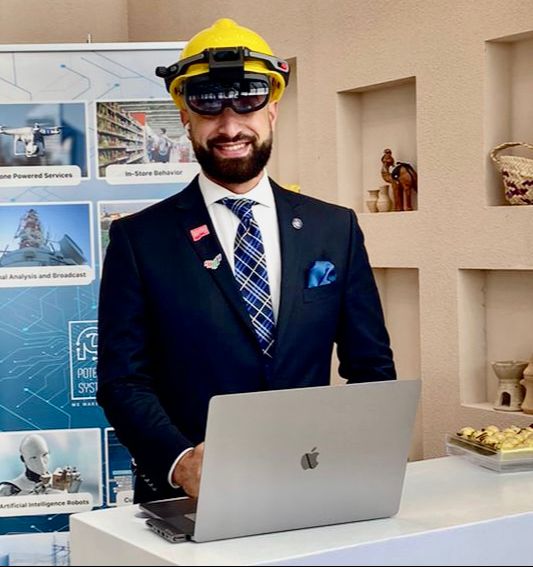MBA programs need to be updated to face digital transformation
- Mariya EL amraoui
- Business
- Middle East
- December 11, 2021

Written by: Engineer Mohamed Saieed
Digital Transformation Consultant in the Middle East and Artificial Intelligence Expert.

I completed my university studies and then obtained a Master of Business Administration specializing in Marketing from one of the European universities, which at that time were curricula that kept pace with the global booms that occurred at the time in the field of information technology. Now the giant corporations have changed radically in recent years. Among the world’s most valuable companies today are Microsoft, Meta, Apple, Amazon, and Alibaba.
These companies rely primarily on knowledge, talent, innovation, and user network influence. This differs radically from the model of the dominant companies in the twentieth century such as General Motors, General Electric, Ford, ExxonMobil and others, which depended on land, facilities, machinery and labor to produce physical goods. On average, today’s tech giant is worth ten times more than the industrial firms of the 20th century.
Historically, business colleges were built like traditional colleges such as finance, accounting, operations management, marketing, and human resource management. This is very similar to the form of companies in the twentieth century, where the largest investment was in machinery and factories. Its goal was to equip managers to make rational decisions in assets, reduce production costs, increase workforce efficiency and the local scope of the companies’ field of operation. Digital business today has changed these laws. Consider, for example, Google, Microsoft, and Meta.
Digital assets can be used an infinite number of times without having to extinguish them. And all of them today compete globally and are not limited to a specific geographical scope. Facebook’s earnings in 2020 are the same as three traditional companies from the 20th century. And the profits of Apple and Microsoft are two or three times more than the profits of Facebook.
The changes are as follows..Finance: It depends on the assets, and based on the expected risks and returns, decisions are taken. Today we need a new model for managing digital assets. For example, Facebook has a network of 2.8 billion users, and other companies generate profits from assets that they do not own, such as Airbnb. Redefining these assets helps estimate their profits. Not to mention the value of the assets themselves, whose appreciation has become a new challenge.
Marketing: Today it needs new skills such as digital marketing and data analysis. Those who work in this field must possess completely different skills than before. Business schools have to collaborate with other schools such as information technology and data analysis to meet the new changes.
Operations Management: A new way of thinking is necessary to explain digital assets, and how to exploit and monetize them, such as tweets, posts, and Internet searches. Some of them require different speed and flexibility than the traditional factory style. Collaboration with data scientists and technology specialists is needed to increase the efficiency of operations.
Human Resources: In the digital age, talent, ideas and innovation without the limited geographical presence within corporate walls. Some employees today work as consultants and remotely, and this all requires different HR policies, Accounting:
In a recent Harvard article, they mentioned that budgets and income statements are less linked to investment decisions. The new trend in accounting is to exploit blockchain technology. In addition, the quarterly and midterm lists do not meet the business need. Today, expectations are towards instantaneous data rather than being specific to a specific time frame. Moreover, management accounting itself is changing. Digital assets need a different way of dealing.
It is a high matter that requires a global study and a continuous update of the content of the curricula globally to confront the fourth world revolution – so to speak – so that the academic content must be in line with the course of the accelerating technological life.








